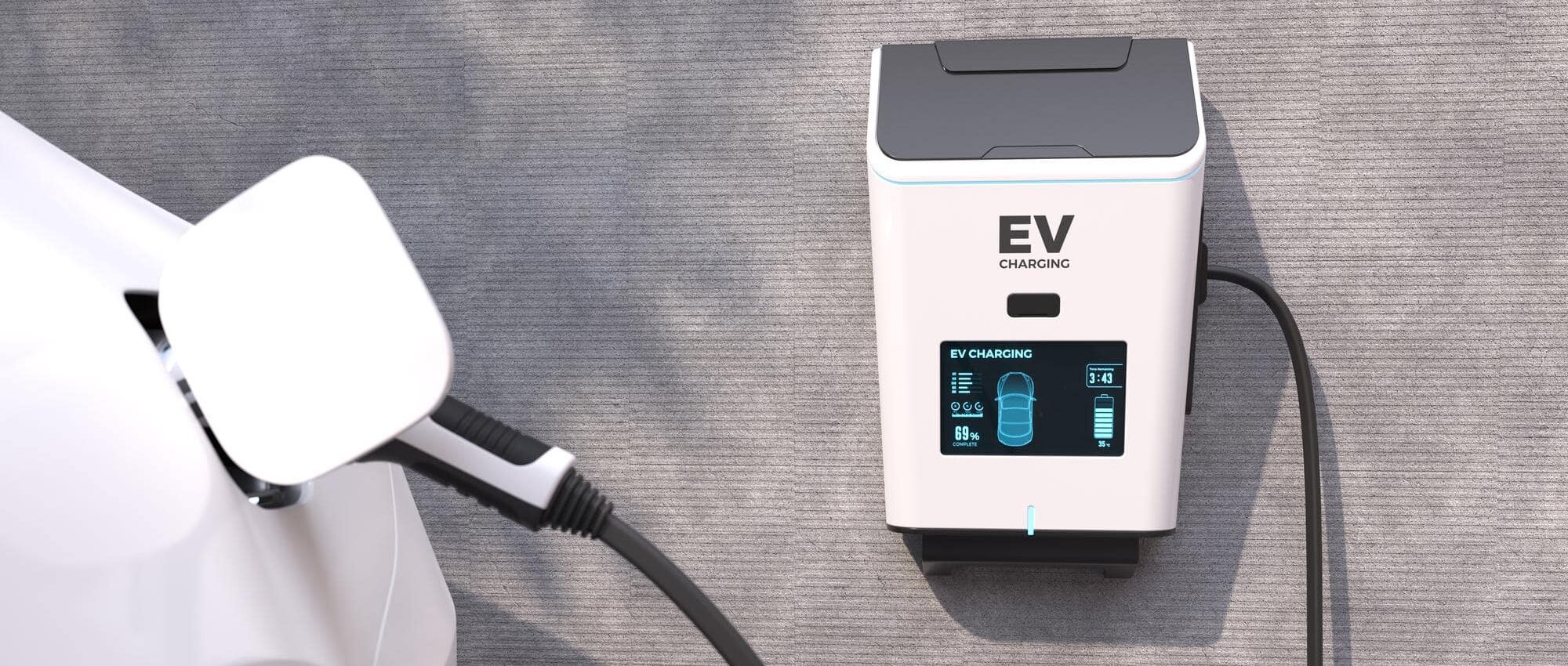Are you considering investing in an electric vehicle charger for your home or business? If so, you might have encountered the “project EV charger”. These advanced charging solutions are designed to make your EV charging experience smooth and hassle-free. But are they the best choice for you? Read on as we delve deep into the world of Project EV chargers, their features, and how they stack up against the competition.
Key Takeaways
- Project EV Chargers provide a safe and efficient charging solution with solar integration, emergency stop button, and RFID/4G versions.
- The charger offers 7.3kW maximum power output for quick charging and energy efficiency when not used. A built-in earthing system eliminates the need for an additional earth rod.
- Project EV provides customer support & a market-leading 5-year warranty to ensure a reliable electric vehicle charging experience.
Project EV Chargers: An Overview
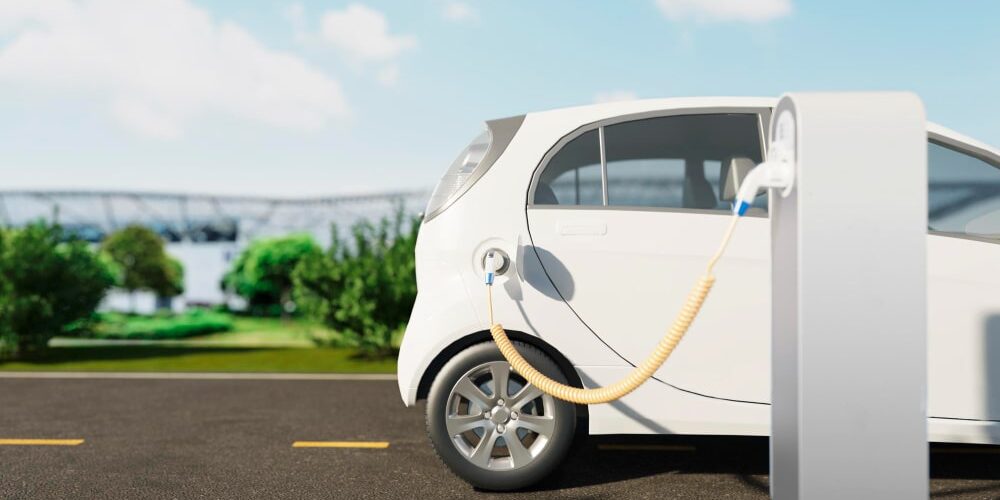
Project EV chargers are compatible with all types of electric vehicles, from Ford to Ferrari, both domestic and commercial. They fully comply with 18th Edition electrical regulations, ensuring safe and efficient charging for your vehicle. For instance, the Project EV Pro Earth charger provides solar integration, an emergency stop button, and both RFID and 4G versions, making it a versatile charging point for electric vehicles.
Aesthetically, the external side of the Pro Earth charger is not particularly attractive, but the face of the unit is pleasing. The charger’s build quality is decent, featuring a simple plastic shell that is sufficiently sturdy to resist the elements. The charger is available in silver and black or all-black, with the latter providing a more sophisticated look.
Max Power Output
Project EV chargers boast the following features:
- Maximum power output of 7.3kW
- Charging speed that fills up most electric vehicles in approximately 6-8 hours
- Ability to generate charging records through the Project EV app, providing a way to track charging habits and energy consumption.
With a standby power consumption of 8W, the charger is energy-efficient when not in use. The charger’s thickness of 145mm makes it the thickest charger tested, but its smart scheduling capabilities allow users to prioritise off-peak charging, saving energy costs.
Earth Rod and Built-in Earthing
One of the standout features of Project EV chargers is the built-in earthing, which eliminates the need for an additional earth rod during installation. This simplifies the installation process, eliminates extra costs, and ensures protection against potential damage.
Earthing helps protect both the charger and its users from various electrical hazards, including:
- Over-voltage
- Under-voltage
- Short-circuiting
- Lightning damage
It is an important preventative measure for safety. So, with Project EV chargers, you can enjoy peace of mind knowing that your charging experience is safe and secure.
Charging Your Electric Vehicle with Project EV
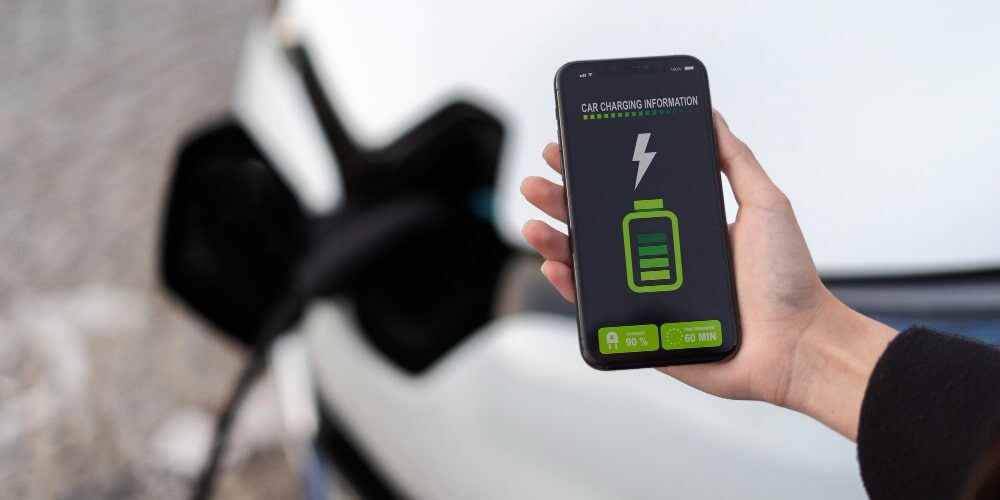
Charging your electric vehicle using Project EV is straightforward and convenient, facilitated by the charger’s Plug and Play mode and the option to schedule charging through the app. The cable lock system securely locks the original untethered cable to the charge point and vehicle, ensuring that your charging cable stays put. When scheduling a charge, you can set the start time, adjust the charging rates, and maintain records of your charging information.
The Project EV app offers the following features:
- Multiple schedules
- Customizable charging rates
- Prioritized off-peak charging
- Charging records
However, the overall charging experience is impacted by the app’s suboptimal performance, as noted by some users.
Solar Integration
Single-gun AC charger models, such as the Project EV EVA-07S, are compatible with solar panel technology. This means you can:
- Harness the power of the sun to charge your electric vehicle
- Reduce your reliance on non-renewable energy sources
- Potentially save on electricity costs.
Using the solar charging feature of the EVA-07S requires CT clamps, which are typically available at an additional cost. However, the long-term benefits of solar integration make it a worthwhile investment for environmentally conscious EV owners.
Tethered vs Untethered Units
Both tethered and untethered units are available for Project EV chargers, each with advantages and drawbacks. Tethered units offer increased security, as they are connected to a power source and cannot be easily moved. Additionally, these units require less maintenance, as they are not exposed to external elements. On the downside, tethered units come with a higher price tag due to the additional installation and wiring required, necessitating more cable storage space.
Untethered units, on the other hand, offer increased portability due to their easy mobility. They also require minimal installation and wiring, making them cost-efficient. However, the lack of a fixed cable connection might pose a security risk in certain situations.
Installation and Setup
Installing and setting up a Project EV charger is relatively straightforward. The process includes the following steps:
- Mount the charger on a wall using the provided wall mounting bracket.
- Connect the charger to the power supply.
- Follow the instructions provided in the application to configure the charger.
Following these steps, you can easily install and set up your Project EV charger.
The Project EV charger offers multiple connectivity options, including standard WiFi, ethernet cable, or 4G connectivity with the purchase of a 4G unit and a SIM card with data. This ensures your charger stays connected and up-to-date, providing a seamless charging experience.
WiFi and SIM Card Connectivity
The WiFi and SIM card connectivity options make monitoring and controlling your charging experience easy. Project EV Pro Earth comes with WiFi and ethernet as standard. You can also get 4G connectivity as an optional extra. This means that even if your home WiFi signal is weak or unavailable, you can still connect with your charger using a SIM card.
By offering these multiple connectivity options, Project EV ensures that you always have access to your charger’s features and settings, making your EV charging experience hassle-free and user-friendly.
The Project EV App Experience
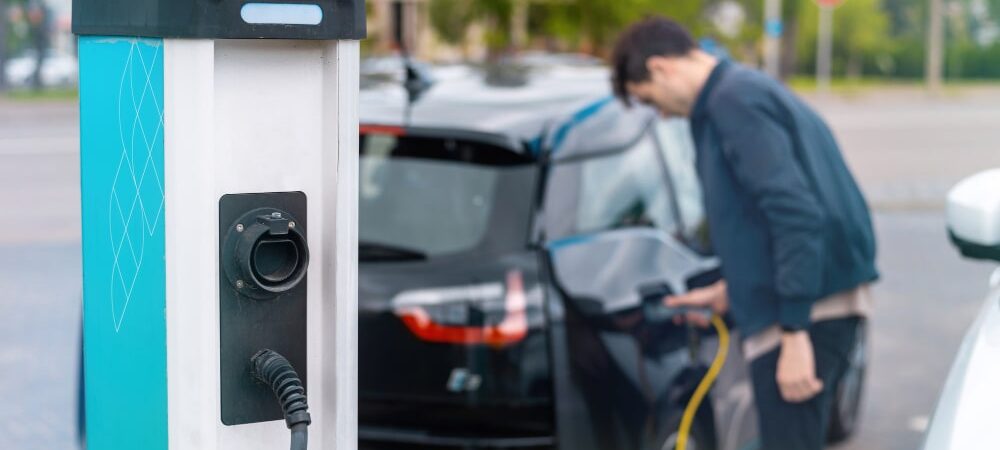
The Project EV app is a management tool for overseeing your charging sessions. It allows you to select and personalize charging rates, prioritize off-peak charging, and create charging records. This provides valuable insights into your charging habits and energy usage, helping you optimize your charging experience.
However, some users have reported issues with the app, such as disconnections during the initial launch period. To address these concerns, Project EV constantly improves its app performance and functionality to enhance the user experience.
Known Issues and Solutions
Some common issues users have faced with the Project EV app include connection drops due to inadequate WiFi connection and scheduled charges not activating. To address these issues, we recommend verifying your home WiFi connection, ensuring the charger is not too far from your home router, and inspecting the circuit breaker at the consumer unit.
Adopting these simple steps can enhance your app experience and allow you to maximize the features of your Project EV charger, leading to a smooth and uninterrupted charging process.
Safety Features and Protections
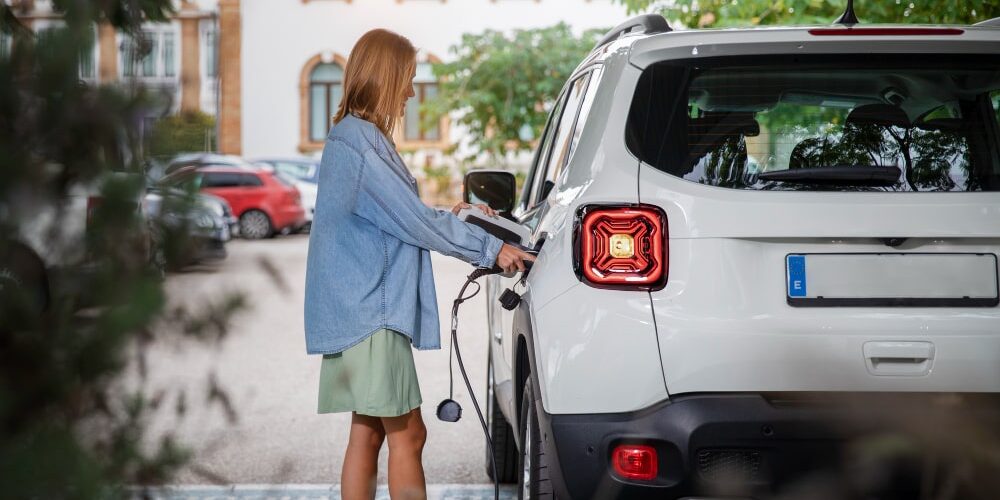
Safety is paramount when charging your electric vehicle, and Project EV chargers are equipped with a range of safety features and protections to ensure secure and reliable charging. These include:
- Integrated cable locking
- Electrical and temperature protection
- IP65 rating
- Market-leading warranty
Integrated cable locking secures the charging cable to the lockable cable socket of the charger, deterring theft or tampering. Electrical and temperature protection safeguards against overheating or short-circuiting, ensuring safe and dependable charging. The IP65 rating certifies that the charger is dust-proof and water-resistant, making it suitable for outdoor use.
Customer Support and Warranty
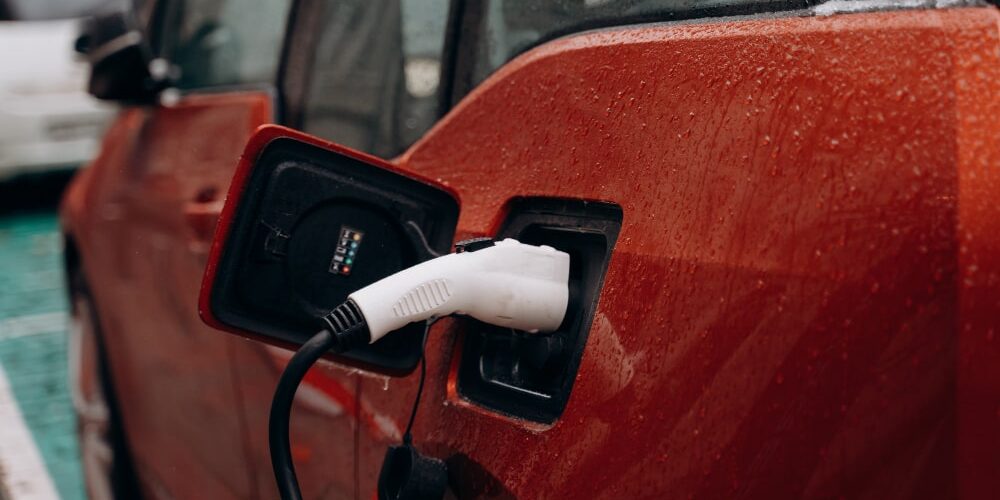
Project EV is committed to providing excellent customer support and offers a 5-year warranty (3 years parts and labour plus two years parts) on their chargers. This market-leading warranty protects you against defects or malfunctions, giving you peace of mind in your investment.
The company’s dedicated support site assists when needed, and their customer support typically responds within 24 hours on weekdays. This commitment to good customer service ensures that you have a reliable partner in your electric vehicle charging journey.
Warranty Claim Process
Should you need to file a warranty claim for your Project EV charger, rest assured that the process is straightforward and hassle-free. Here’s what you need to do:
- Contact their customer service team.
- Provide proof of purchase.
- Provide a detailed description of the issue.
- The team will assess the claim and provide a resolution.
This hassle-free warranty claim process ensures that any issues with your charger are addressed promptly and efficiently, allowing you to continue enjoying the benefits of your Project EV charger with minimal disruption.
Comparing Project EV Chargers to Alternatives
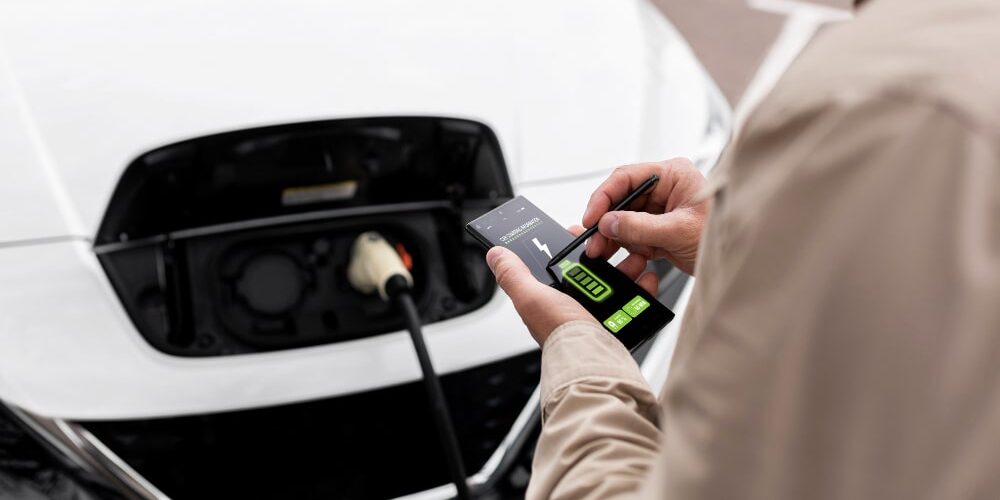
Project EV chargers present several competitive advantages, including:
- Multiple vehicle charging
- Split power output capabilities
- Tethered and non-tethered options
- Universal compatibility with all-electric vehicles
However, one must also take into account potential drawbacks. Project EV chargers can be pricier than other options and may require a more intricate installation procedure.
Nonetheless, Project EV chargers’ unique features and benefits make them stand out in the crowded EV charging market. It’s crucial to weigh the pros and cons of each charger brand to determine which one best suits your specific needs and preferences.
Summary
In conclusion, Project EV chargers offer a reliable, feature-packed, and versatile solution for charging your electric vehicle. With their wide range of features, including solar integration, built-in earthing, and multiple connectivity options, these chargers provide a seamless charging experience. While there are some minor drawbacks and app-related issues, the overall benefits of Project EV chargers make them a strong contender in the EV charging market. Consider your needs, preferences, and budget to determine if Project EV chargers are the right choice for you.
Frequently Asked Questions
Who manufactures Project EV chargers?
Shenzhen Atess Power Technology Co., Ltd manufactures Project EV chargers with leading-edge technology and excellent quality.
Is Project EV any good?
Project EV is reliable, well-built and aesthetically pleasing, making it an excellent electric vehicle charging unit.
Can I use my Project EV charger without the app?
You can use your Project EV charger without the app, as the Plug and Play mode allows you to plug your car into the device for charging.
How fast is the Project EV charger?
The Project EV charger has a charging speed of 7.3kW and can provide 15-30 miles of range per hour of charge. It has remote control and monitoring through the Project EV app for convenience.
What types of electric vehicles are compatible with Project EV chargers?
Project EV chargers are compatible with a wide range of electric vehicles, from domestic models like Ford to commercial ones like Ferrari.
